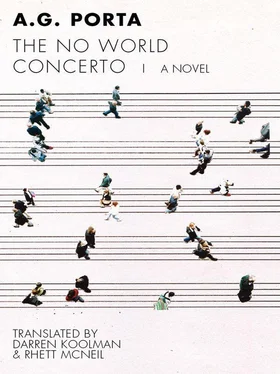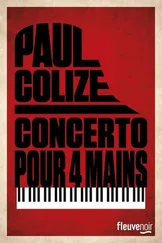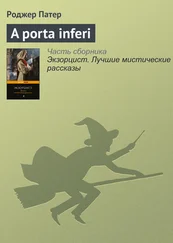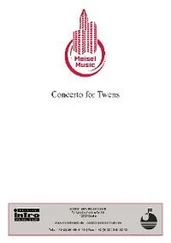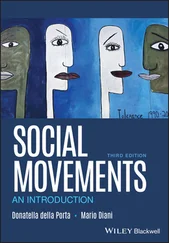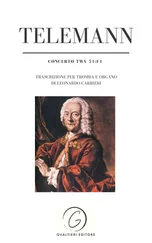The screenwriter doesn’t take the time to listen to the CDs, or leaf through the pages of the book, but he knows exactly what he’s going to write. He’d already sketched it in his notebook. The girl is inside a bus-stop shelter, watching her two friends’ silhouettes receding down the street. After the rehearsal, the girl sent the chauffeur back to the hotel; now, she’s waiting for a bus, along with a couple of shopgirls and a salesman, the latter leaning against one of the columns of the shelter, bobbing his briefcase and smoking a cigarette. The girl gives the impression that she’s all alone in the city. The screenwriter listens to her thoughts as if they were a voice-over. At times, she thinks, I act like such a fool. Thoughts like these usually result from one of her daily quarrels with the young conductor: quarrels about the performance, their new arrangement of the piece, anything and everything really. Right now, nothing is more important to the conductor than the upcoming performance in the church, and the rehearsals are critical — an opportunity, he’d say, to repeat certain passages over and over until a steady, automatic rhythm is achieved. Every now and again, they go over the brilliant composer’s compositions: the No World Symphony and the clown’s almost song, almost recitation, for which the chief difficulty is the proper synchronization of a number of music boxes. After the rehearsal, the girl tells them about the guy she’s run into a couple of times, and the young conductor insists they write the opera for which he’d already conceived a music video, the one with a sleazy and sordid setting, and a song with lyrics that tell the story of a guy who accidentally winds up in a trendy bar and looks for a nice young girl to rescue him, to take him somewhere they can dance the bolero together, or something like that. The girl likes to think it’s all a game. They go into one of the bars with foosball tables, but they don’t concentrate on their playing, since they’re engrossed in a discussion about musical tempo.
The brilliant composer proposes writing without a set meter so he doesn’t have to deal with all the changes in tempo, as all the various mathematical combinations and permutations are bogging him down. It’s late when she says good-bye to them at the bus stop, and leans against a column of the bus shelter, opposite a cigarette-smoking salesman, to watch them recede down the street. She can’t remember the last time she rode a bus. Maybe she’ll grab the first available taxi, or call the chauffeur at the hotel. Maybe she’ll just go for a walk. She wouldn’t mind the fresh air. As she considers what to do, she can’t help taking a look around, in case she sees that familiar face, the guy she’s seen so many times before in the city, whose face she can’t quite place.
The screenwriter doesn’t feel like cooking, nor is he in the mood to go to a restaurant. So he settles for some cheese and cold cuts while watching TV, before deciding to go to the café. He tries to recall if this is the first time he’s left the hotel at night since he arrived. He’s almost certain it is, but before he can reach certainty on the matter, he’s already at the bottom of the hill, and his attention is diverted by the lights and bustle of the plaza. There’s nowhere to sit in the café, which is now teeming with people holding desperately onto the hem of a vanishing day. It seems paradoxical to have walked through deserted streets and yet find there’s not a single seat available on the terrace. Since he’s in a good mood, however, he settles for a table inside, and looks around for the waitress. He figures she doesn’t work nights, and resigns himself to being waited on by a trainee. The book he bought speaks at length about the composer of the 5 Pieces for piano , which the girl is planning to both perform and record; a composer who dedicated himself to a never-ending search for new sounds, and so substituted conventional tonalities and scales for those in which no single note takes precedence, in which all are of equal importance. He closes the book and looks at his watch. He starts to feel a little anxious: by his reckoning, the girl could be coming to see him in a couple of hours. But the fact he’s made some progress on his work today eases his disquiet. He knows, however, that this is only a transitory feeling, for nothing can guarantee tomorrow’s peace of mind. Back in his hotel room, the hours go by slowly, and when the new day finally arrives, it seems to him as if an eternity has passed. It’s Friday the fifth. The screenwriter puts the calendar next to the typewriter and limps over to the bathroom mirror to smooth out the bags under his eyes. The girl never showed up, and he sacrificed his hours of sleep for a nightlong vigil next to the window. The bags refuse to go away, and all he’s accomplished in trying to smooth them out is make them a little redder. No matter. He grabs his notebook and index cards and deposits them in his jacket pocket then heads to the café in the plaza. On arriving, he sees there are only a half-dozen customers, and he knows this is one shift the waitress never misses. As she waits on the other tables, the screenwriter goes through his index cards and tries to imagine the circumstances that prevented the girl from visiting the previous night. Perhaps her mother’s gotten back from her trip and she has to keep up appearances. This doesn’t seem a likely excuse. Perhaps she felt particularly threatened by her pursuer, despite her not knowing if the pursuit is real, since the mere suspicion seems to be enough to cause her to retreat into seclusion. The screenwriter considers the possibility she spent the night with the young conductor of the orchestra. Perhaps he’s suspected this all along, and he’s just been ferreting for excuses to avoid the knowledge that he’s just a jealous old man. The screenwriter decides to stop thinking about it and return to his index cards. There are a variety of cards, some devoted to character, for example, others to scenery, although he doesn’t take detailed notes on them, normally writing his outlines in his notebooks and then copying them onto blank but paginated sheets of paper. He still has his idea about the onion, although he’s beginning to think it’s defunct. He wonders if it was ever of any use. There’s no point second-guessing, he says to himself; at least these kinds of ideas allow you to keep moving forward. The waitress returns after serving another table. Their eyes meet, but she still doesn’t smile. You don’t know what you’re missing, he mutters to himself, turning his attention back to the notebook and index cards. An ambiguous character, the girl’s father; a man who got rich through some shady business dealings, unscrupulous, capable of suspending his most cherished principles for the guerdon of a quick buck, a man who knows and can deal with the fact that the world abides by sets of unwritten rules, a man who functions according to these rules, secretly, as though he were above the law and every other manmade institution. The only law is that of the jungle, thinks the screenwriter, a jungle lacquered by the lie of civilization. This could be a potential sketch of the girl’s father, a character with traits not unfamiliar to the screenwriter.
“Today’s Friday, and my father’s in a bad mood,” the girl writes in her diary, “and when he’s like this, it’s best to just leave him alone. He’s a decent guy overall, but today he seems out of sorts. And it’s not because it’s Friday. Something else is on his mind.” He’d spent half the morning talking on the phone to this McGregor person while the girl was practicing on the piano in the living room. Then he left. In the bar next to the little theater where she rehearses, the girl is in a bad mood. And it’s not because it’s Friday. It’s because she’d rather be writing than drinking, although she knows she never gets anywhere with her writing. Some members of the Little Sinfonietta — the violinist, the clarinetist, and the cellist — are sitting at a table awaiting the arrival of another two. Some of the musicians are so young they have to be accompanied from their dorm to attend rehearsals. The girl could’ve stayed at the same dorm, but her mother thought she’d be more comfortable at the hotel with the English name, and that she’d have more time on her own to practice. The brilliant composer, seated next to her, wants to know why she’s in a bad mood. She says she’s lost, that she can’t find the right approach, the right plot, the right whatever for her work in progress. The brilliant composer offers an impromptu solution: he suggests her No World should be autobiographical. As she noisily slurps the lees of her soft drink, the young conductor appears in the doorway surrounded by other young musicians. The girl doesn’t want to write about herself. She doesn’t believe her life is interesting enough to write about. The brilliant composer, on the other hand, believes quite the reverse.
Читать дальше
